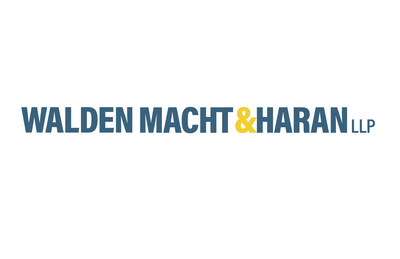Lawsuit Accuses NASDAQ-listed AudioEye CEO and its Executive Chairman of Stock Manipulation
Rhea-AI Summary
The law firm Walden Macht & Haran LLP has filed a lawsuit on behalf of former AudioEye executive David Kovacs against AudioEye, its CEO David Moradi, and Executive Chairman Dr. Carr Bettis, among others. The lawsuit alleges Kovacs was wrongfully terminated for refusing to partake in a stock manipulation scheme devised by Moradi and supported by Bettis.
Kovacs, hired by AudioEye in 2014, claims he was terminated on January 17, 2024, after declining illegal activities intended to inflate the company's stock price. The lawsuit states that AudioEye's stock price surged 400% since Kovacs' termination, without substantial public information justifying such a rise, indicating possible manipulation. Kovacs also reported the scheme to the SEC.
The lawsuit outlines that Moradi, leveraging non-public information, aimed to inflate AudioEye’s share price through insider trading and fake reviews. The scheme supposedly allowed Moradi and his associates to profit significantly by selling shares at inflated prices.
Positive
- AudioEye shares surged approximately 400% since January 17, 2024, indicating strong stock performance.
Negative
- Allegations of stock manipulation involving CEO David Moradi and Executive Chairman Dr. Carr Bettis.
- Lawsuit filed, claiming wrongful termination and defamation of former executive David Kovacs.
- Potential insider trading and market manipulation may pose legal and financial risks.
- Unsubstantiated stock price surge suggests instability and possible investor deception.
Insights
The lawsuit against AudioEye's CEO David Moradi and Executive Chairman Dr. Carr Bettis raises significant concerns about the integrity of the company's stock performance. The accusation of stock manipulation, if proven, could severely impact the company's valuation and investor trust. AudioEye's stock price has surged by approximately
Historical trading volume data supports the lawsuit's claim, as the stock saw a dramatic increase in trading volume from 10,900 shares on August 28, 2023, to 536,200 shares traded by May 29, 2024. This unusually high trading volume without substantial positive news could indeed suggest manipulation. If the SEC investigation mentioned in the lawsuit confirms these allegations, we could see severe regulatory actions taken against AudioEye, including fines, restrictions, or even delisting from NASDAQ.
For stakeholders, this situation highlights the importance of transparency and corporate governance. Investors should be cautious and consider the potential ramifications of this lawsuit on both the short-term stock price and the long-term viability of AudioEye. In the short term, there might be significant fluctuations as the market reacts to the news. Long-term effects will depend on the legal outcomes and how the company addresses these serious allegations.
The allegations against AudioEye, involving stock manipulation and defamation, bring forth serious legal implications. The lawsuit filed by David Kovacs' attorneys at Walden Macht & Haran LLP is not just about Kovacs' wrongful termination but also about systemic issues within the company's leadership. Should the court find merit in the accusations, there could be severe penalties for the individuals involved, including criminal charges and civil liabilities.
From a legal standpoint, the involvement of the SEC indicates that federal regulators are taking these claims seriously, which could lead to a thorough investigation. For retail investors, the risk of potential legal repercussions and the financial impact on the company should not be understated. A confirmed case of stock manipulation could result in class-action lawsuits from shareholders, further damaging the company's financial health.
Moreover, the detailed nature of the complaint, including the alleged use of VPNs and fake reviews, portrays a deliberate attempt to deceive the market. If these allegations hold, it would not only affect AudioEye's share price but also its reputation, potentially leading to a loss of business and partnerships.
This lawsuit brings to light the vulnerabilities and potential unethical practices within high-growth tech companies like AudioEye. The company operates in the niche market of website accessibility compliance, which has seen increased demand due to regulatory requirements. However, the allegations could overshadow its market potential and damage investor confidence.
From a market perspective, the 400% rise in the stock price over a short period is highly unusual and raises red flags, as it substantially outpaced the S&P 500 and industry peers. Investors should be wary of such dramatic increases, as they often precede significant corrections, especially when there is suspicion of manipulation. The lawsuit and subsequent investigations could lead to a revaluation of the company's stock, causing it to drop significantly if the allegations are proven true.
Furthermore, the market's reaction to such news typically involves a sell-off as investors try to mitigate risk, which could further depress the stock price. Long-term, the company's ability to recover will depend on its transparency and efforts to rebuild trust with investors and clients.
Whistleblower employee David Kovacs was terminated and then defamed for refusing to participate in the scheme
Since Kovacs' termination, AudioEye is trading
The lawsuit alleges that the stock manipulation scheme was initiated after Kovacs' termination. AudioEye is trading approximately
Kovacs began working with AudioEye – a provider of website accessibility compliance services to businesses – in January 2014 as an independent contractor. He became a Strategic Advisor in October 2016 and Vice President of Business Development in April 2019. He held the position until January 17, 2024, when he was terminated for refusing to participate in Moradi's stock manipulation scheme.
Kovacs also co-founded the video game maker First Contact with Moradi, who served as Executive Chairman. In a late August 2023 phone call, Moradi instructed Kovacs to download a virtual private network (VPN) to enable him to write and leave fake reviews for First Contact's latest game, Firewall Ultra. At this time, First Contact was engaged with Bank of America and in the process of being sold. During the same phone call, Moradi directly instructed Kovacs to use a VPN to conduct, according to the lawsuit:
"market manipulation and insider trading activities for AudioEye, including by receiving non-public material information about AudioEye from Moradi, and providing it to wealthy acquaintances before such information was released to the public. Moradi explained that inducing these individuals to purchase AudioEye's stock would attract additional investors and pump up the price of AudioEye's shares before the information at issue was released to the general public…after the information was released to the general public, the price of AudioEye shares would further increase to levels they would not have reached without the initial pumping up of the price to an inflated price bases through the insider trading."
The lawsuit goes on to state that under Moradi's scheme, once the share price was elevated, "Moradi and his co-conspirators could sell their shares of AudioEye's stock at higher prices than they otherwise could have sold them for.".
In a subsequent call, Kovacs made clear he did not want to do anything illegal, upsetting Moradi, who said, "Buddy, if you're not going to help with this, maybe you won't get your equity in First Contact, and maybe I won't feel like supporting your health benefits or your role at AudioEye anymore."
Per the lawsuit, once it became clear to Moradi that Kovacs would not participate in the scheme, during an August 28, 2024, phone call, Moradi said, "I am the law, I have the best lawyers in the world, I will never be in trouble, Buddy. I'm worth
"I will not support your healthcare and your salary, you mother**cker, earn your keep. You do what I say and when I say it. Respect your elders, mother**cker. You will do the reviews and you will do what I tell you to do with AudioEye's stock. Do what I tell you and set it [the VPN] up now."
Throughout Moradi's pressure campaign, Kovacs regularly spoke with AudioEye Chairman Bettis. In a late August 2023 phone call, Kovacs told Bettis that Moradi had asked him to do "things that were unethical and that" made Kovacs uncomfortable. Bettis responded that Kovacs "must do what Moradi had asked of him." Throughout these interactions, Bettis regularly reminded Kovacs to follow Moradi's "instructions, and if Kovacs didn't, Moradi was going to ruin Kovacs' life."
On November 13, 2023, Kovacs emailed Brittani Morelli, Vice President of Human Resources at AudioEye, requesting a confidential meeting and asking Bettis to be present. After receiving the request, Morelli informed Moradi and the meeting never took place. On January 17, 2024, AudioEye terminated Kovacs' employment, stating his services were no longer needed, and in a subsequent email, general counsel James Spolar informed Kovacs that the termination was "for cause." According to AudioEye, the "cause" was Kovacs not being truthful about his work and educational history, despite having worked with the company for nearly a decade and having long-standing relationships with Moradi and Bettis. According to the lawsuit, both accusations are demonstrably false, and claiming otherwise is a clear case of defamation.
Per the complaint filed by Milton Williams and Deanna Paul of Walden Macht & Haran, Mr. Kovacs informed the Securities and Exchange Commission (SEC) of the stock manipulation scheme.
Milton Williams said, "David Kovacs was terminated and defamed because he refused to participate in David Moradi's illegal market manipulation scheme."
Share Price and Trading Volume Timeline
- August 28, 2023, AudioEye closed at
$4.71 $55,500,000 - November 13, 2023, AudioEye closed at
$4.11 - January 17, 2024 – the day Kovacs was terminated – AudioEye closed at
$5.24 - As of May 29, 2024, AudioEye closed at
$25.59 $300,000,000
Biographies
David Moradi is the CEO and largest shareholder of AudioEye and the founder of Sero Capital. He previously helped fund now-convicted criminal Martin Shkreli's purchase of KaloBios (NASDAQ: KBIO) and served on its Board of Directors. He has worked at both Pequot Capital and Soros Fund Management.
David Kovacs is an investment banker, private equity executive, venture capitalist, and entrepreneur known for his futurist approach. He leverages experience in both mature and emerging markets to restructure institutions and develop new markets.
Kovacs began his career in 2003 as a Business Analyst at Citigroup Global Markets and held positions at Blackstone Capital Markets as an associate consultant, at the Hinduja Group as Managing Director of Private Equity Investments and Strategic Relationships, and at Fitch Learning as Head of Investment Banking and Private Equity,
Kovacs was the Founder and CEO of Emmersive Entertainment, the Managing Director at Audioeye, and the Head of Public Policy at Humanigen. He also served on the technology transition committee for
Kovacs earned a Bachelor of Science in Economics and Finance from the College of
Contact:
Frank De Maria
frank@purposefuladv.com
+1 347 647 0284
Elie Jacobs
elie@purposefuladv.com
+1 646 330 2585
![]() View original content to download multimedia:https://www.prnewswire.com/news-releases/lawsuit-accuses-nasdaq-listed-audioeye-ceo-and-its-executive-chairman-of-stock-manipulation-302182921.html
View original content to download multimedia:https://www.prnewswire.com/news-releases/lawsuit-accuses-nasdaq-listed-audioeye-ceo-and-its-executive-chairman-of-stock-manipulation-302182921.html
SOURCE Walden Macht & Haran LLP









